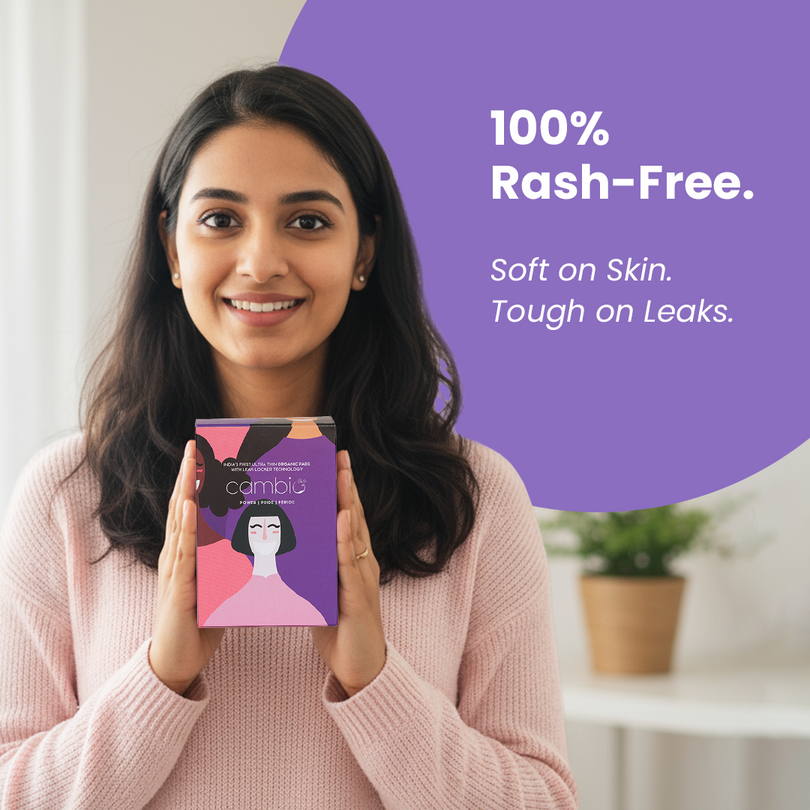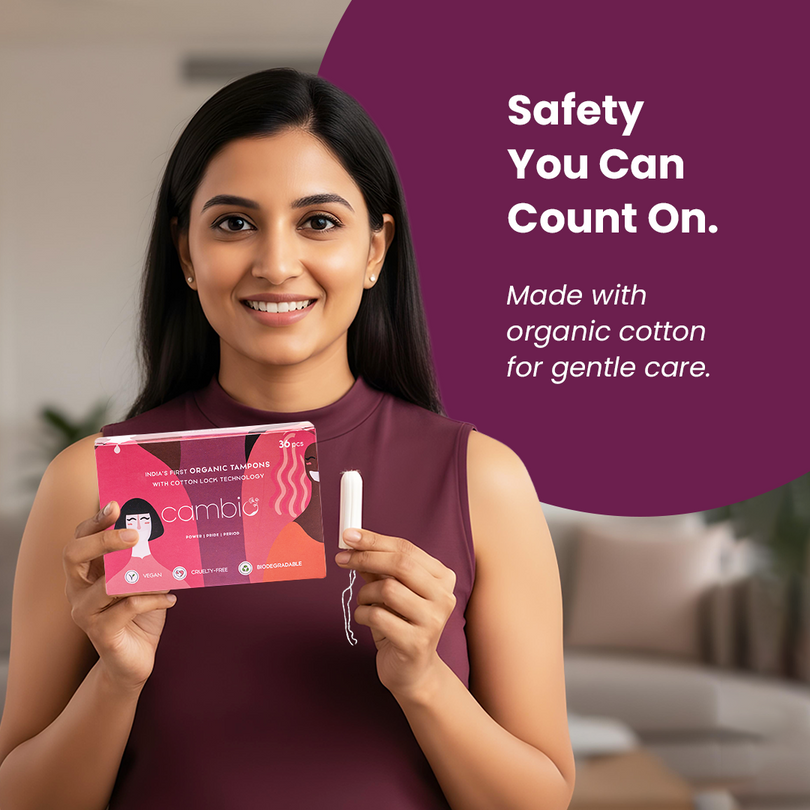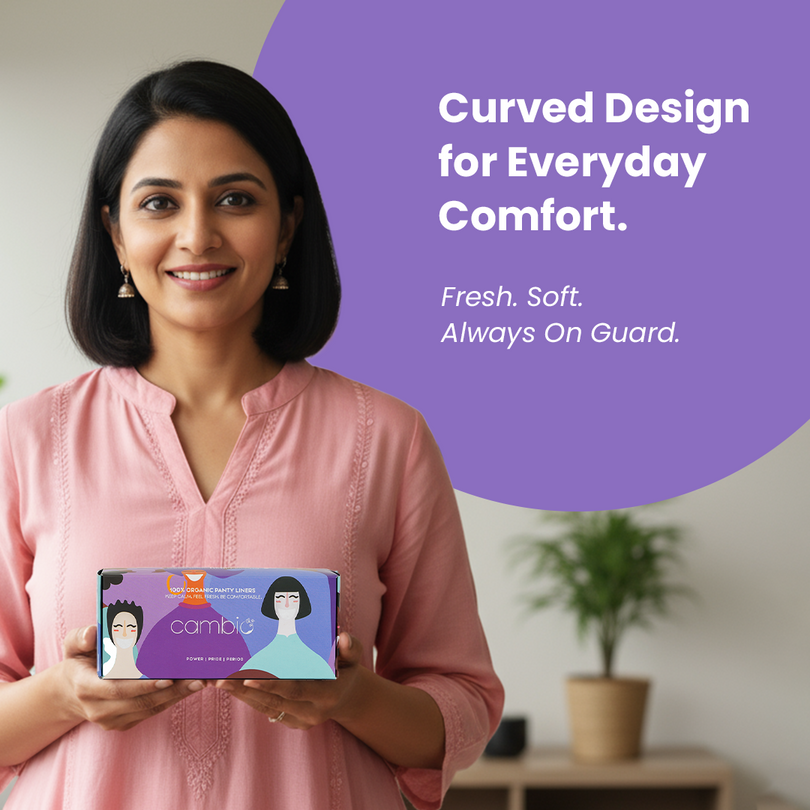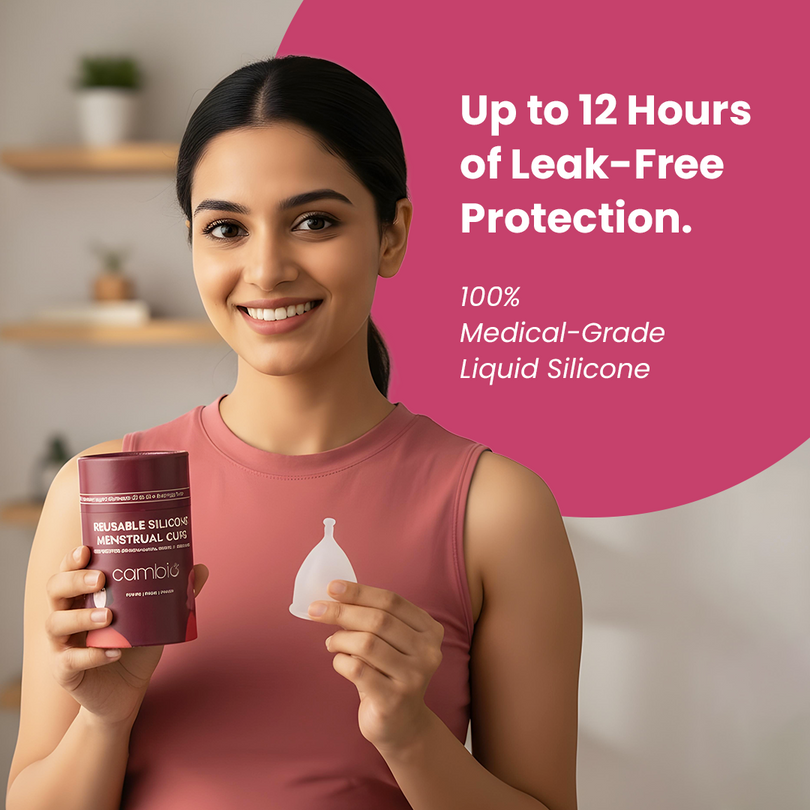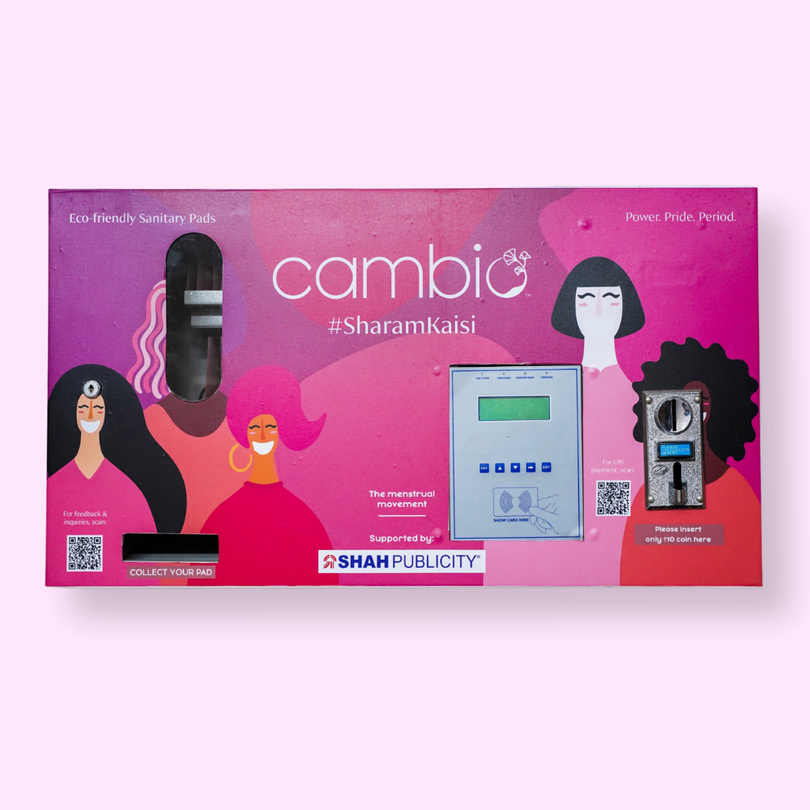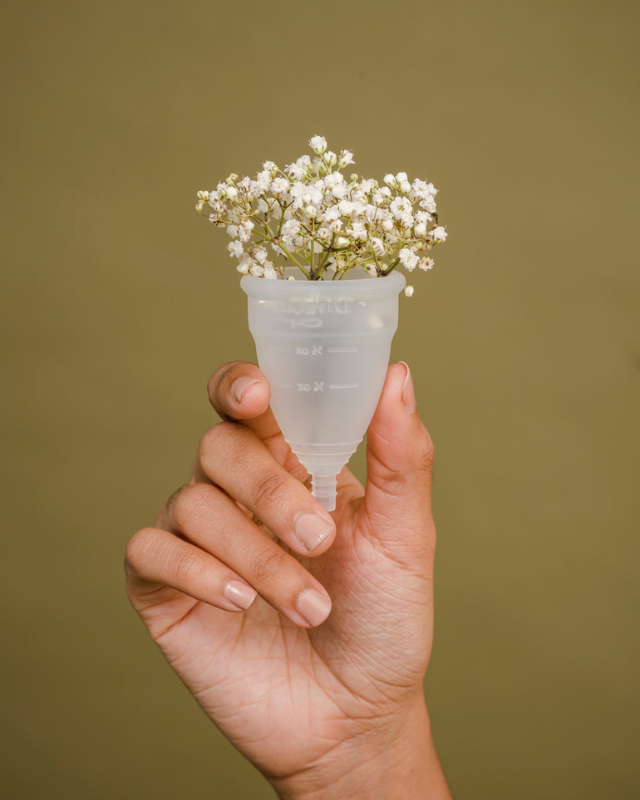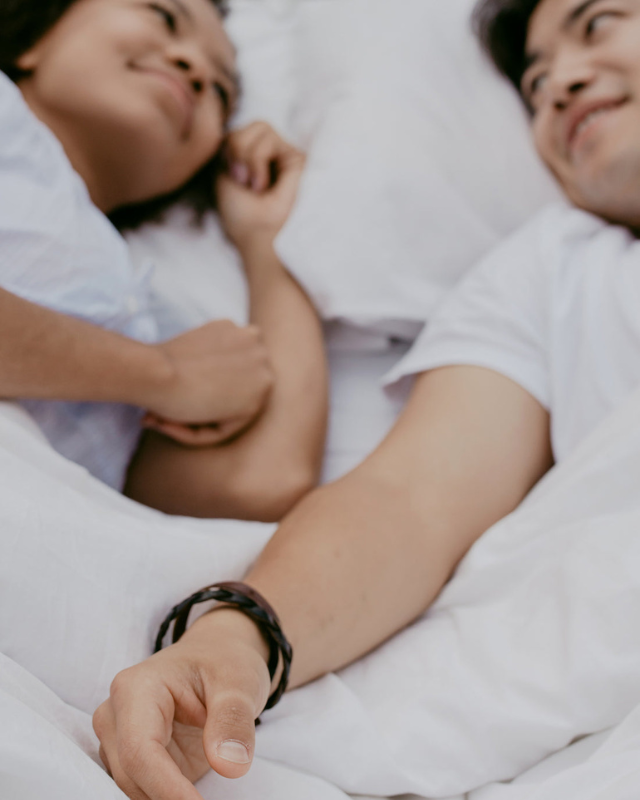More than half of the women suffer from annoying, painful, and downright terrible period cramps.
Monthly cramps in the stomach and backaches, tag along with your periods.
Besides eating chocolates there are other many ways which can help you to relieve the pain.
Experiencing painful menstrual cramps can leave you desperate for a solution.
So here’s everything you need to know about menstrual cramps and how you can effectively tackle them.
What are period cramps?
Period cramps are the sudden pain that you get in the lower abdomen before and during the menstrual period (also known as dysmenorrhea.)
The amount of pain differs from body to body. For some females, the pain is bearable while for some it is the most dreadful time of the month.
And it is important to treat severe menstrual cramps as they can hamper your health and everyday activity.
Once you know the reason behind your pain, you can manage your period with ease.
Period cramps are often accompanied by nausea, vomiting, headache, diarrhoea, and dizziness.
Cause of period cramps
PMS-- Premenstrual syndrome is a common condition that's caused by hormonal changes in the body.
Endometriosis-- This is a condition in which the tissue lining the uterus grows outside of the uterus.
Precocious puberty- Reaching puberty before age 11.
Genetic reasons- The severity of your menstrual cramps can have a correlation with your family history and genetics.
Fibroids: Noncancerous tumors, known as fibroids, can cause abnormal menstruation.
Here are some remedies that can help you out!
How to reduce period pain?
There are numerous ways by which you can lessen your period pain. Many remedies are present on social media platforms or your mother and grandmother can help you with some home remedies.
Here are some tried and tested remedies and I recommend you to try these remedies and make your period easy and bearable!
- Intake of anti-inflammatory foods. Try eating leafy green vegetables, salmon, berries, pineapples, etc.
- Drink more water. Drink hot water as it will relax your muscles and alleviate some of the pain.
- Try some yoga poses like bow pose, fish pose, camel pose, head to knee forward bend, etc.
- Hot water massage or a warm shower can also help.
- Herbal tea and intake of vitamin D.
Do and Don'ts during periods?
During menstruation, you need to keep a check on a lot of things. You have to especially observe your eating habits and make sure you are eating the right food which doesn't hamper your periods.
Some of the important things to keep in mind during periods are enlisted below--
What should you follow?
- Cut off caffeine.
Caffeinated beverages might make your cramps worse and alter the duration of the menstrual cycle.
- Complete your 8 hours of sleep every day.
Less than six hours of sleep results in irregular periods.
- Practice yoga and meditation.
Yoga is one of the best ways to regulate irregular periods and helps you to deal with painful menstrual cramps. Here are some poses that you can try: Child’s pose, Low cobra pose, Cat-cow pose, and Camel pose.
- Bath regularly.
Menstrual hygiene is very important and it is also vital to the empowerment and well-being of women.
- Drink lots of water and keep yourself hydrated.
It reduces bloating and makes you feel less lethargic. It also helps in alleviating backache and cramps.
- Eating foods rich in fiber and protein.
A low-carb diet leads to irregular periods. A healthy diet is high in vegetables, fruit, nuts, fish, and low-fat dairy products.
What to avoid?
- Skipping meals and eating junk food and the foods that can cause constipation.
Not eating properly can cause dysmenorrhea and PMS.
- Smoking or alcohol consumption.
Alcohol can lead to hormonal fluctuations that can result in both irregular ovulation and periods. Smoking and alcohol can cause dehydration and excessive urination.
- Wearing the same sanitary product all day long.
Sanitary napkins need to be changed every 6 to 7 hours. Changing your pad ensures good hygiene and avoids vaginal odor and infections.
- Physical overexertion.
Exercising too much can cause missed menstrual periods or make your periods stop entirely.
- Using unhygienic washrooms.
It is very important to maintain the hygiene of your washroom to avoid any infections.
- Excess medication for menstrual cramps.
Many prescription and nonprescription medicines can affect the menstrual cycle. Medicines can cause hormonal changes which hamper the period and body activities as well.
When should you seek medical help?
Period cramps are a commonly faced problem among women. However, if you can relate to the following points, it’s better to seek the advice of a health professional--
- If your period gets heavier and cramps increased with each passing month.
- When all the home remedies no longer work to reduce the pain.
- Along with the pain, you feel feverish.
- The pain doesn't lessen even after taking the medications.
- Not only in the stomach area but your other body parts also ache for eg, pain in thighs, lower back, knees, etc.
Conclusion
The biggest irony about being a woman who menstruates is that while it is painful when you get periods, it isn't always a moment to rejoice when you don't.
''Stressed because the period is a week late, the period is a week late because of stress?''
Your mental health and menstrual cycle go hand in hand. It's important to pay attention to both of them.
Learning about your body is extremely important to maintain good health.
Don't suffer in silence. Let's get to the bottom of cramps!

